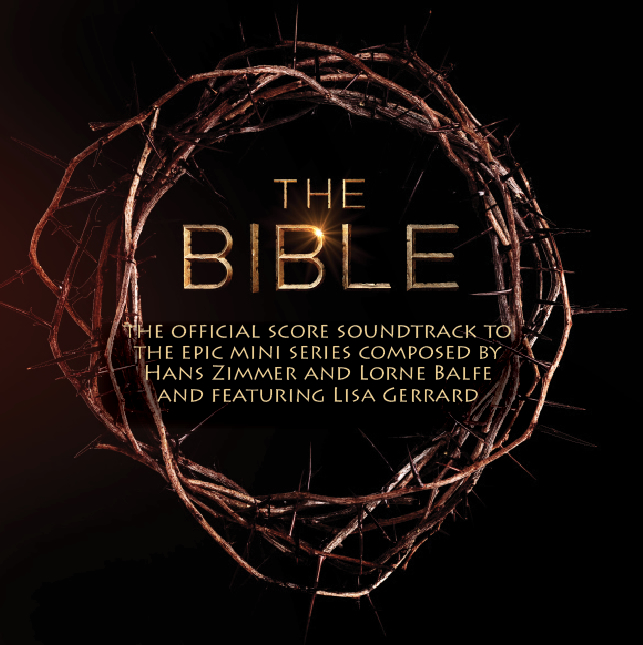Why ‘The Bible’ Sounds Like ‘Batman’

A good composer could do creative and theological wonders by working a central theme for Christ into relevant portions of Old Testament narratives.
If you were watching that controversial miniseries The Bible on The History Channel, and suddenly began thinking of the Dark Knight rather than God separating darkness from the light, I’ve learned why that is:
Perhaps the most inspiring choice on the production side was commissioning Hans Zimmer to produce the music. Scoring animated classics like The Lion King, as well as mega franchises such as Pirates of the Caribbean and The Dark Knight, Zimmer has defined movie music for this generation in the way that composer John Williams (Star Wars, Jaws) defined it for the previous generation. His music for The Bible followed familiar lines, adding cinematic quality that validated the series’ self-description of “epic.”
Of course, above I said “if you were watching.” I haven’t seen the series. I’ve only read of the complaints (and also moderate praises) about it.
Similarly, Zimmer’s work has its admirers and detractors. I’m no musician, yet I can tell from online clips that Zimmer’s The Bible score sounds like an exact blend of his The Dark Knight trilogy work and his phenomenal score for The Prince of Egypt (Dreamworks, 1998). In this score, Zimmer also works with vocals by Lisa Gerrard, whose vocals were remixed in the most recent Man of Steel trailer.
Meanwhile, have you seen The Bible miniseries? If you’re a fan of the Word and Scripture-based speculation, what do you think?
This piece at The Gospel Coalition takes a more-balanced view of The Bible. It includes, however, this moderately voiced challenge:
In a fascinating irony, our secular postmodern cultural milieu has created a new opportunity to revisit the traditional Reformed position on images of Christ. If films are moving icons (and they are), then the classic theological arguments against making an icon of God should apply.
Personally, I’d thought that debate was long over. Unless anyone is actually worshiping an “image” represenation of Christ — Who, by the way, in His incarnation Himself “imaged” the Father — then no one has committed sin. But of course, I’m not always ahead on things; after all, I only just today learned that Hans Zimmer and his gang composed the score for The Bible.







































I haven’t seen the mini-series, either, but now I want to own the soundtrack!
I own the soundtrack, love it, and write to it. I also loved the final two-hour episode of the miniseries aired on Easter Sunday (no, I haven’t seen the previous four installments). But, while it contained the most powerful presentation of Christ’s passion I’ve ever seen, and while I got chills watching Diogo Morgado’s emotional range as Jesus, the insightful exploration of His enemies’ motivations, and the poetic intercutting of the Passover rituals with the crucifixion, I thought the show missed a huge opportunity by balking at the last second and presenting a traditionally prosaic, by-the-Book resurrection sequence. Ironically, the quality which seemed to garner the most controversy — those speculative, “true-to-the-spirit-of-the-text” liberties taken by the filmmakers — was the very aspect I felt was lacking at the crucial climax. Just goes to show it’s impossible to please all Christians at all times.